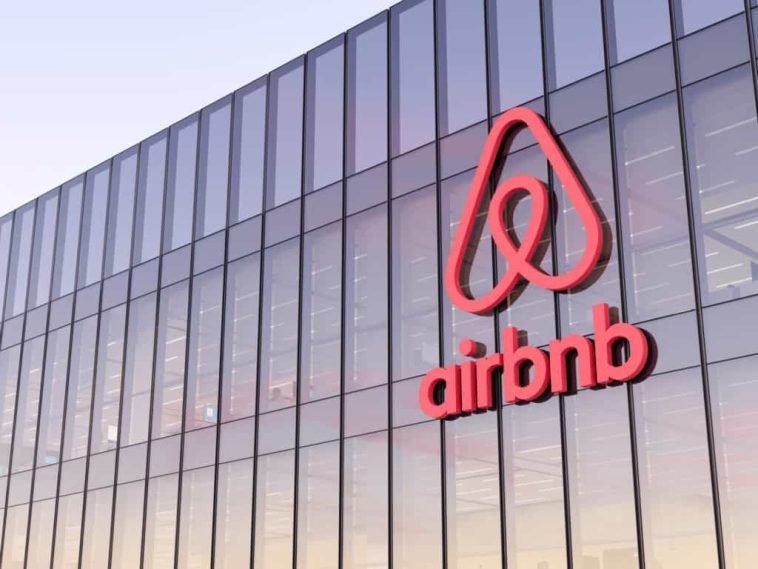Introduction.
Renting out property on Airbnb has become one of the most popular ways to earn extra income. But if you’re looking to start an Airbnb business and don’t own the property, getting your landlord on board can be a challenge.
Many landlords are sceptical about subleasing for short-term rentals, usually because of concerns about liability, property damage, and even potential legal issues.
So, if you’re determined to try it out, how do you get your landlord to give you the green light?
Here’s a detailed guide on making a strong, convincing case to your landlord for an Airbnb business and why both of you can benefit.
How Do I Approach My Landlord About an Airbnb Business?
Getting your landlord to agree to your Airbnb plans requires some groundwork, clear communication, and maybe a bit of negotiation. Here are key steps to follow:
1. Understand Your Lease Agreement.
Before you do anything, review your lease agreement carefully. Some leases have specific terms about subleasing or hosting short-term guests.
You need to know if there are any clauses explicitly forbidding subletting or any reference to short-term stays. If the language is unclear or ambiguous, that might give you more flexibility in starting the conversation.
2. Do Your Research on Local Regulations.
Landlords are often worried about the legal implications of subleasing for short-term rentals, and for good reason. Different cities have varying regulations regarding Airbnb and similar platforms.
For example, some cities limit the number of days a property can be rented on Airbnb, while others have restrictions on short-term rentals altogether. Check local laws, make sure you’re compliant, and let your landlord know you’re up-to-date on regulations.
3. Address Common Landlord Concerns.
To effectively pitch your idea, it’s essential to think from your landlord’s perspective. Here are some common concerns landlords have about Airbnb:
- Property Damage: They worry that strangers may not treat their property respectfully, leading to costly repairs.
- Liability Issues: Some landlords are concerned that if a guest gets hurt, they might be held responsible.
- Disruptive Guests: The thought of strangers constantly coming and going can lead to concerns about noise, complaints from neighbors, and general disturbances.
Addressing these concerns directly and offering solutions will show that you’re prepared to manage risks.
4. Offer a Profit-Sharing Arrangement.
One effective way to sway a landlord is by sharing a portion of your Airbnb income with them. For instance, you could agree on a percentage of each booking or increase the monthly rent slightly in exchange for Airbnb rights. A profit-sharing arrangement can help your landlord feel they’re benefiting from this arrangement too.
5. Highlight Airbnb’s Insurance Protection.
Airbnb provides a host guarantee, which offers up to $1 million in protection against damages to the property.
There’s also liability insurance, which covers costs if a guest gets injured while on the premises. Although this may not cover every situation, it can provide some peace of mind for a hesitant landlord.
6. Ensure Proper Screening of Guests.
Reassure your landlord that you’ll screen every guest thoroughly. Airbnb offers tools for screening, such as ID verification and user reviews, which help ensure you’re only hosting reliable, respectful guests.
Offering to put additional guest screening measures in place, like only accepting guests with verified IDs or positive reviews, can add an extra layer of security.
7. Offer a Trial Period.
A trial period could be the ultimate deal-clincher. Suggest a three- or six-month trial period where you handle Airbnb guests.
If there are no problems, the arrangement could continue long-term. The trial period lets the landlord see that Airbnb hosting is manageable and profitable.
Pros and Cons of Renting Out Property on Airbnb (as a Tenant)
Here’s a rundown of some benefits and drawbacks that could impact both you and your landlord if they agree to the Airbnb arrangement.
Pros:
- Additional Income: For both tenant and landlord, Airbnb rentals can bring in extra money, especially if the property is in a high-demand area.
- Improved Property Management: Airbnb hosts generally keep the space well-maintained to ensure good reviews, which can mean a cleaner, better-cared-for property.
- More Security: If the property would otherwise be empty during certain times, having Airbnb guests can add an extra layer of security.
Cons:
- Increased Wear and Tear: Frequent guests can lead to higher levels of wear and tear, which might require additional maintenance and repairs.
- Potential for Liability Issues: Although Airbnb has some insurance, unexpected incidents can still arise, leading to complex liability issues.
- Concerns from Neighbors: Regular turnover of guests may create unease among neighbors, especially if there’s noise or increased traffic.
FAQ
1. What if my lease agreement forbids subletting?
If your lease agreement explicitly prohibits subletting, your options become limited. However, you can still ask your landlord if they’re open to a formal agreement or an amendment to allow short-term rentals.
2. Can a landlord kick me out for hosting Airbnb guests without permission?
Yes, if your lease prohibits subleasing or Airbnb hosting and you proceed without permission, your landlord may have grounds for eviction. It’s essential to have clear approval before proceeding.
3. What are the best ways to minimize property damage?
You can minimize property damage by choosing guests with positive reviews, setting house rules, and limiting the number of guests. Offering a security deposit can also encourage guests to treat the property respectfully.
4. What if my landlord is open to Airbnb, but the property is in a city with strict regulations?
If the property is in a location with restrictive Airbnb laws, you may need to reconsider. Breaking local laws can lead to fines or penalties, potentially affecting both you and your landlord.
5. How much should I offer my landlord in a profit-sharing agreement?
The amount varies, but many tenants offer between 10% to 20% of their Airbnb earnings. You can start by proposing a percentage and adjusting based on what feels fair for both parties.
Conclusion
Convincing a landlord to agree to an Airbnb business isn’t always easy, but with a transparent approach and mutual understanding, it’s achievable.
By addressing their concerns, offering profit-sharing, and ensuring proper management, you can create an arrangement that’s beneficial for both sides.
Would you be open to negotiating terms if your landlord showed interest in making money from your Airbnb rentals?




GIPHY App Key not set. Please check settings